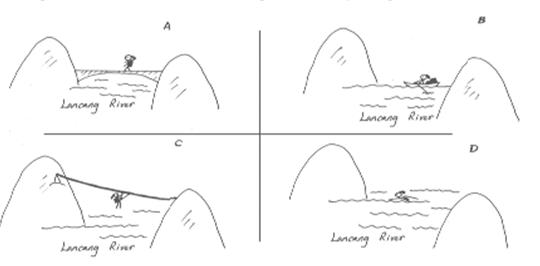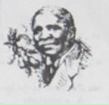题目内容
Greg Woodburn, a university student, spends a lot of time cleaning sports shoes. Some of them once belonged to him; some belonged to his friends. But soon the shoes will have new owners, poor children in the USA and 20 other countries, thanks to Greg’s Share Our Soles(鞋底) (S.O.S) charity.
Greg was a high school running star in a small town in California. He had to stop running for months because his knee was injured. “I started thinking about all the things I got from running, the health, the friendships and the confidence.” he says. And I realized there are children who don’t even have shoes.
Greg collected his own sports shoes and then called his friends and the town. His aim was to have 100 pairs by Christmas 2006. When the number climbed to more than 500 pairs. Greg know that he could collect sports shoes all year round.
Now he has set up collection boxes in his town. So far, S.O.S has collected and donated more than 3,000 pairs of shoes. And Greg has cleaned almost all of them. “People think of it as duty work,” he says, “but I like doing it, because I feel happy when I’m doing it. It’s not work I want to pass on to someone else.”
In just three years, Greg has started three branches(分部) of S.O.S and there are more and more sports shoes.
For many poor children who have received the shoes mean opportunity. Two young boys in southern California used to go to school on alternate days(隔日) because they both shared a pair of shoes. They were too big for one boy and too small for the other. Thanks to S.O.S, each brother received his own pair of shoes. The boys now go to school every day. When they graduate, they say they will help others, just as Greg helped them.
小题1:Who will Greg donate these sports shoes to?
_____________________________________________
小题2:From running Greg got health, friendships and confidence, and what did he realize?
_____________________________________________
小题3:How many pairs of shoes has S.O.S collected and donated so far?
_____________________________________________
小题4:Why does Greg like to clean the donated shoes?
__________________________________________________
小题5:What did the two boys in southern California learn from Greg?
___________________________________________________
Greg was a high school running star in a small town in California. He had to stop running for months because his knee was injured. “I started thinking about all the things I got from running, the health, the friendships and the confidence.” he says. And I realized there are children who don’t even have shoes.
Greg collected his own sports shoes and then called his friends and the town. His aim was to have 100 pairs by Christmas 2006. When the number climbed to more than 500 pairs. Greg know that he could collect sports shoes all year round.
Now he has set up collection boxes in his town. So far, S.O.S has collected and donated more than 3,000 pairs of shoes. And Greg has cleaned almost all of them. “People think of it as duty work,” he says, “but I like doing it, because I feel happy when I’m doing it. It’s not work I want to pass on to someone else.”
In just three years, Greg has started three branches(分部) of S.O.S and there are more and more sports shoes.
For many poor children who have received the shoes mean opportunity. Two young boys in southern California used to go to school on alternate days(隔日) because they both shared a pair of shoes. They were too big for one boy and too small for the other. Thanks to S.O.S, each brother received his own pair of shoes. The boys now go to school every day. When they graduate, they say they will help others, just as Greg helped them.
小题1:Who will Greg donate these sports shoes to?
_____________________________________________
小题2:From running Greg got health, friendships and confidence, and what did he realize?
_____________________________________________
小题3:How many pairs of shoes has S.O.S collected and donated so far?
_____________________________________________
小题4:Why does Greg like to clean the donated shoes?
__________________________________________________
小题5:What did the two boys in southern California learn from Greg?
___________________________________________________
小题1:To the children who don’t even have shoes.
小题1: He realized there are children who don’t even have shoes.
小题1: More than 3,000 pairs of shoes.
小题1:Because he feels happy when he is doing it.
小题1: From Greg they learned that they should help others.
小题1:根据第一段But soon the shoes will have new owners, poor children in the USA and 20 other countries, 描述,可知答:To the children who don’t even have shoes.
小题1:根据第二段And I realized there are children who don’t even have shoes.描述,可知答: He realized there are children who don’t even have shoes.
小题1:根据第四段So far, S.O.S has collected and donated more than 3,000 pairs of shoes.描述,可知答: More than 3,000 pairs of shoes.
小题1:根据第四段And Greg has cleaned almost all of them. “People think of it as duty work,” he says, “but I like doing it, because I feel happy when I’m doing it.描述,可知答:Because he feels happy when he is doing it.
小题1:根据最后一段When they graduate, they say they will help others, just as Greg helped them.描述,可知答:From Greg they learned that they should help others.

练习册系列答案
 阅读快车系列答案
阅读快车系列答案
相关题目
 the river. But when I reached the other side, I found that I was flying.”
the river. But when I reached the other side, I found that I was flying.” .
. imming in the river.
imming in the river.
